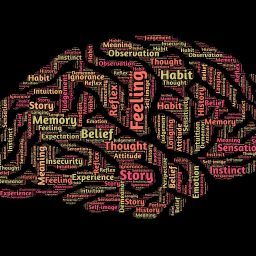
This talk by Peter Boghossian at The Ramsay Centre for Western Civilisation explores the applicability and significance of the Socratic method in fostering critical thinking and advancing civilization. Peter begins by highlighting his interest in finding simple, conceptual “bales of hay” to clean up cognitive processes, inspired by a childhood lesson from his father on … Continue reading The Socratic Method in the Western Tradition Peter Boghossian (2023)

The video presents an excellent example of the Socratic method in action. Instead of directly stating his stance on J.K. Rowling’s controversial statements, Warren guides the student through a series of probing questions, encouraging him to analyze the statements himself critically. Warren avoids imposing his opinion and instead prompts the student to re-examine the initial … Continue reading When a Student Asks About JK Rowling This Happens Warren Smith

Close Pop-up All Episodes This is the source material used to create this podcast. Posts where this video is embedded Conclusion: Two Pillars of Truth Critical thinking – a civic dutyTags: NotebookLM (6) | podcast (21) | scientific method (27) | Socratic elenchus (8) | Socratic method (14)Google Web Search Photo Credits: Midjourney ()This page is part … Continue reading Two Pillars of Truth Podcast generated by NotebookLM

Conclusion: Two Pillars of Truth The Scientific Method Close Pop-up all posts in this chapter What’s the Vibe? Please be patient as this may take up to a minute to load… Close In this chapter, I explore the two foundational pillars of truth-seeking: the scientific method and the Socratic elenchus. The pursuit of truth is … Continue reading Introduction: Two Pillars of Truth The convergence of science and philosophy in the pursuit of knowledge

Recognising New Age Mumbo Jumbo The History of the Socratic Method Close Pop-up all posts in this chapter What’s the Vibe? Please be patient as this may take up to a minute to load… Close The Socratic method uses dialogue to stimulate critical thinking and challenge assumptions, aligning closely with the principles of Conversational Leadership. … Continue reading The Socratic Method A powerful tool for critical thinking

Critical thinking and effective communication are crucial for addressing pressing issues in a complex world. The Socratic method, a dialogue-based approach to fostering inquiry and understanding, has evolved to meet these challenges. By exploring its history and modern applications, we discover valuable tools for navigating complexity and promoting sustainability. Continue reading The History of the Socratic Method The evolution and impact of Socratic dialogue

The Socratic elenchus is a method of refutation rooted in ancient Greek philosophy. It challenges assumptions through questioning, often exposing contradictions in reasoning. This technique encourages deeper self-awareness and critical thinking, much like Conversational Leadership, by fostering intellectual humility. Its emphasis on open dialogue and inquiry makes it especially relevant in fields … Continue reading The Socratic Elenchus A tool for intellectual discovery

The Socratic Elenchus The Two Pillars of Truth Close Pop-up all posts in this chapter What’s the Vibe? Please be patient as this may take up to a minute to load… Close Conversational Leadership emphasizes the importance of intellectual humility and open-mindedness in discussions. Polarization and confirmation bias can stifle productive conversations on complex issues. … Continue reading How Could We Be Wrong? Is a crucial question to ask in a conversation

What Is a Real Conversation? The Value of Conversation ** Close Pop-up all posts in this chapter What’s the Vibe? Please be patient as this may take up to a minute to load… Close Numerous words or phrases describe the varied forms of conversation and speech. This page lists some of the more common ones … Continue reading The Language of Conversation and Speech Meanings of words describing conversation and speech

How Could We Be Wrong? Conclusion: Two Pillars of Truth Close Pop-up all posts in this chapter What’s the Vibe? Please be patient as this may take up to a minute to load… Close The pursuit of truth is a fundamental human endeavor. However, arriving at the truth can be challenging, as our beliefs and … Continue reading The Two Pillars of Truth How the scientific method and Socratic elenchus underpin civilization

The Two Pillars of Truth Introduction: Two Pillars of Truth Close Pop-up all posts in this chapter What’s the Vibe? Please be patient as this may take up to a minute to load… Close We need to recognize that the pursuit of truth and the application of rigorous critical thinking are not just intellectual exercises … Continue reading Conclusion: Two Pillars of Truth Critical thinking – a civic duty

Speed-conversation Spectrum Street Epistemology Close Pop-up all posts in this chapter What’s the Vibe? Please be patient as this may take up to a minute to load… Close We all hold deeply rooted personal beliefs, many of which we have never questioned. Street Epistemology is a conversational technique based on the Socratic method, designed to … Continue reading Street Epistemology Exploring deeply held beliefs

Difficult Conversations Introduction: Conversational Leadership Skills Close Pop-up all posts in this chapter What’s the Vibe? Please be patient as this may take up to a minute to load… Close An impossible conversation may feel futile as it occurs between individuals who possess radically different ideas, beliefs, morals, politics, or worldviews. Such conversations are likely … Continue reading Impossible Conversations Navigating conversations across ideological divides








